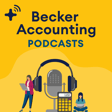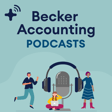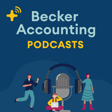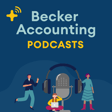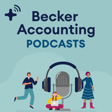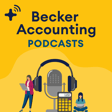
Cool Careers in Accounting Ep. 11 - Telling Stories & Defining Your Own with Nicole Balkenbusch
Nicole (Alex) Balkenbusch, Chief Storyteller at Amazon, joins us to discuss her journey from accountant to financial planning and analysis leader at one of the world’s largest corporations. She emphasizes the importance of storytelling in finance, bringing data to life to drive business decisions. She has also built a leadership development and executive coaching business, and shares advice on managing work-life balance, setting goals, and the importance of mentorship. Learn insights into taking your career beyond traditional expectations.
Earn CPE by listening to this podcast through a Becker Prime CPE subscription.
Listen to this episode through your Becker LMS platform to complete practice questions, pass the final exam, and earn CPE credit.
Already a Becker Prime CPE customer? Login here.
Have access to Becker CPE through your employer? Earn CPE credit for this podcast however you consume Becker CPE, either through your company’s LMS or via the Becker platform. Not sure where to log in? Check with your CPE admin.
Learn more about CPE Podcasts from Becker: https://www.becker.com/cpe/becker-podcasts
